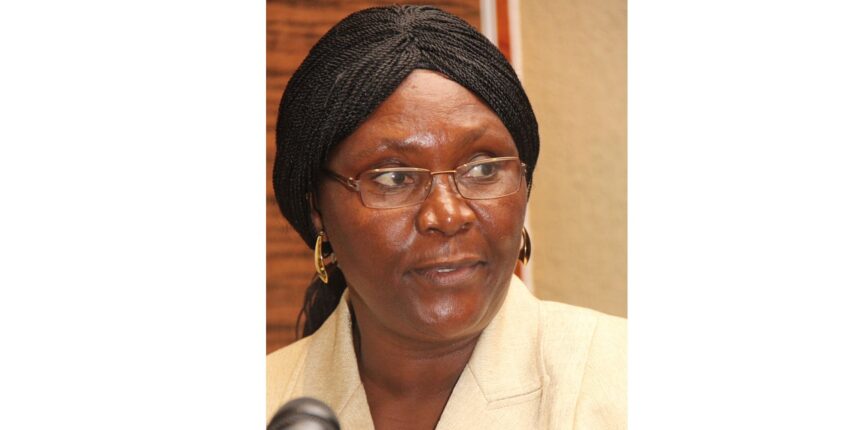Hertta-Maria Amutenja
Between 2022 and 2023, the Namibian Police recorded 187 cases of human trafficking.
This was revealed by Namibian Police’s Crime Investigations Coordinator in Ohangwena, Deputy Commissioner Zacharias Amakali on Friday at the observance of World Day Against Trafficking (TIP) in persons at the Oshikango Border Post in the Ohangwena Region.
Amakali said the police currently have 101 cases of trafficking persons on hand compared to the 86 cases reported in 2022 and 26 cases are on court roll.
In addition, he said the psychological impact on the victims has made it difficult to investigate cases of trafficking.
“Victims are usually deceived or forced into exploitive situations which in some instances are life-threatening. What makes it sometimes a challenging crime to investigate is the fact that some of the victim’s fond bonds with their exploiters. It is for this reason Namibia has adopted a multi-disciplinary approach to deal with this crime,” he said
The occasion also marked the launch of the TIP national plan of action under the theme “Reaching Every Trafficking Victim and Ensuring No One is Left Behind.”
The Ministry of Gender Equality, Poverty Eradication, and Social Welfare organized this significant event in collaboration with the Namibian Police. The primary objective was to raise awareness about the critical issues surrounding Trafficking in Persons.
The call was made to increase investments in these communities to improve opportunities for people to enhance themselves, gain access to education and health, and increase employability. At the same time, she emphasized the need to identify and support victims of human trafficking and ensure severe punishment for offenders.
Speaking at the event Prosecutor General Martha Imalwa said it is significant that this year’s event is being commemorated at Oshikango border town because neighboring towns are hotspots for these crimes.
“People in the northern regions need to be aware that when they see young children from countries like Angola, Democratic Republic of Congo, or Zambia selling sweets and other goods in the streets, sometimes these children may be victims of trafficking in person and are being exploited as vending sellers,” stated Imalwa
Imalwa said it is critical to intensify awareness and education campaigns so that the community is aware of the crime of human trafficking and what to look for to identify victims.
She also implied that traffickers are members of the community, that victims are exploited within such communities, and that offenders are not only from a different country.
“We can only win the fight against trafficking in persons if communities are aware of what trafficking in person entails and work hand in hand with law enforcement agencies. Some of what members of the public need to know regarding this crime of trafficking is a person such as getting someone from a poor family from Angola or within the community in Namibia like in the Opuwo area for that person to do your domestic work. You then keep that person and make him or her work long hours in the fields and your home and don’t pay them any money or pay them much less than the prescribed minimum wage. That is called exploitation by law and that means you have committed the crime of human trafficking in persons. This what is happening within our communities,” she said
Since 2015 when the first case of trafficking in persons in Namibia was successfully prosecuted, a total of 8 traffickers have been convicted and are currently serving in Namibian prisons.
Walde Ndevashiya, Governor of Ohangwena region, stated that from 2010 to date, a total of 20 cases have been reported in Ohangwena region, of which 8 cases have been finalized, 8 are on the court roll awaiting trial, one case has been submitted to the PG’s office for her decision on whether or not to prosecute, and three cases are currently under investigation.
Angolan Ambassador to Namibia, Jovelina Costa also emphasized the importance of raising awareness in society, particularly among vulnerable communities, to fight against this evil.
“There has been a growing concern in regard to this evil action of human trafficking in persons.
It is important to raise awareness in society, especially amongst vulnerable communities Our countries have also committed themselves to strengthen the technical capabilities of our police forces as well as to enhance corporation between them. Namibia and Angola are not exempted from criminals. A partnership between Namibia and Angola is very important to fight organized crime in the region,” said Costa.
She further urged to increase investments in these communities to improve opportunities for people to enhance themselves, gain access to education and health, and increase employability.
“It is important to raise awareness in society, especially amongst vulnerable communities. We need to invest in the communities to improve the opportunities for people to improve themselves. We also need to identify and support victims of human trafficking and severely punish offenders,” she added.



Leave a Reply